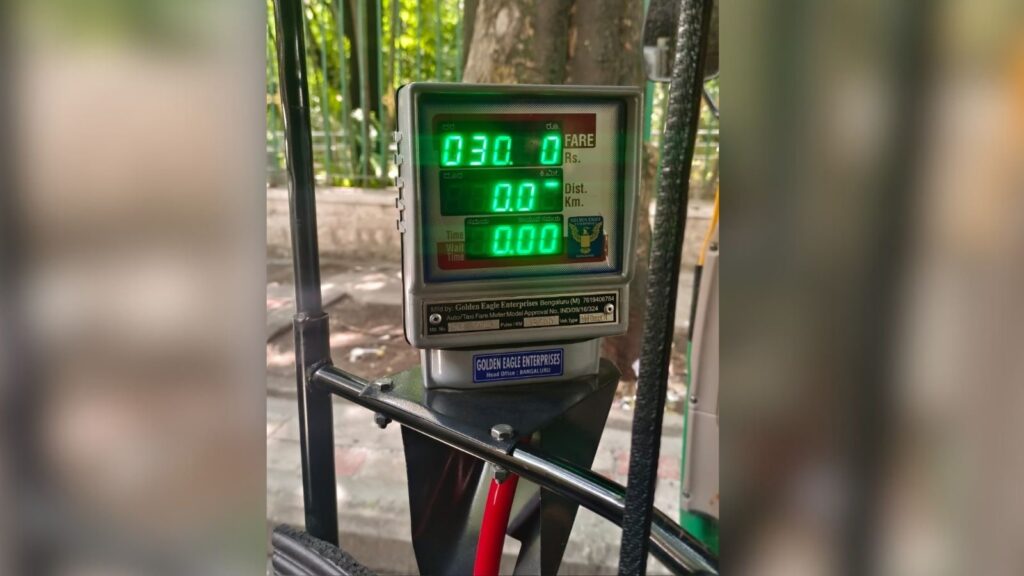In a city where commuters often say that auto-rickshaw rides booked through aggregator apps feel overpriced, two Bengaluru-based software engineers have developed a tool that allows them to check just how much extra they may be paying.
Anmol Sharma and Yash Garg have built a simple fare calculator — Meter Haaki (“Switch on the Meter”) — which is available at meterhaaki.com. The platform helps users calculate what their fare should have been according to the official meter tariff, and compare it with what app-based aggregators actually charged them.
“When we came across the #MeterHaaki movement, it resonated deeply with us. Every day, commuters are overcharged simply because they don’t have easy access to what the correct fare should be. We built the MeterHaaki website to bridge this gap and make fare comparison simple and accessible for everyone. Transparency should be effortless, and that’s what we are trying to enable,” said Sharma.
The developers said they are also working on a mobile application, Naviget, to make fare comparisons even more accessible for daily commuters.
How to use the Meter Haaki calculator
The tool is in line with the new fares that came into effect from August 1.
According to the new rates, the minimum fare for the first 2 kilometres has been increased from Rs 30 to Rs 36. For every subsequent kilometre, passengers will now have to pay Rs 18, up from the earlier Rs 15. The night fare — applicable between 10 pm and 5 am — will be charged at 1.5 times the regular rate.
Using the calculator involves four simple steps. Commuters can check into the Meter Haaki website and find the distance of their trip. If the website doesn’t show it, commuters can check Google Maps for accuracy. Following this, the commuters are directed to ask the driver to start the meter at the beginning of the journey.
Story continues below this ad
After their trip ends, commuters can note the distance and wait time from the meter and input it into the calculator on meterhaaki.com. Passengers can then compare the fare shown on the app with the official meter fare.
High auto fares
The platform comes as a response to a broader problem with aggregator-based auto services, which critics have labelled as being “rigged in favour of drivers” while burdening commuters — especially middle-income earners — with inflated fares.
Commuters who use auto-rickshaws in Bengaluru have long raised concerns about high fares levied by ride-hailing apps, which use surge pricing, tips, and hidden charges that often far exceed the government-notified rates.
Despite repeated court orders and government advisories mandating the use of fare meters, the rule is rarely enforced, and most auto-rickshaws operate through app-based bookings that determine fares as per market forces.
Story continues below this ad
While congestion charges, driver additions, and tips before trips are certain factors contributing to higher fares on aggregator apps, the operators are, however, allowed to charge only 10 per cent above the government-notified fare, plus 5 per cent goods and services tax as per the Karnataka High Court’s October 2022 order.
Shantha Gowda, an auto-rickshaw driver actively championing the ‘Meter Haaki’ campaign, told indianexpress.com, “Dishonesty among auto drivers has spiked rampantly following the app-based bookings. While auto drivers pay a subscription fee to these aggregators, the platforms frequently hike prices under the pretext of surge demand or convenience, with little transparency. Through this campaign, we want to empower customers and urge drivers to flag the meter down and earn honestly.”
Adding to the frustration is the Karnataka Government’s seeming inaction, experts said.
“Despite existing fare regulations and multiple directions from the High Court to enforce them, implementation has been lax. Meters, mandated by law, are often installed but never switched on. Aggregators are nothing but fare brokers. They control the market unfairly—setting prices in a way that neither the drivers nor the passengers truly benefit,” pointed out Satya Arikutharam, an urban mobility expert.


